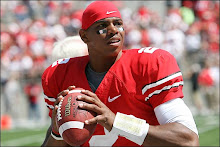

In our American Studies class, we are discussing the history of the Progressive Era and the differences between the privileged and impoverished. But this week two important news stories revealed a real-life parallel to early 20th century America. In one case, Northern Trust Corporation, a Chicago-based bank, recently became one of many banks to misuse the money trusted to them by the government in the $700 billion bailout-bill. Money given to the banks, in Northern Trust’s case $1.6 billion, was supposed to help people secure loans and mortgages from the banks again after the economic meltdown. But Northern Trust decided to dedicate their share to a much more noble cause than the American consumer: the Professional Golfer’s Association.
This past weekend in Los Angeles, the Chicago bank hosted the Northern Trust Open, a PGA golf tournament. According to a New York Times article, the bank “treated clients to four days of posh hotel rooms, salmon and filet mignon dinners, music concerts, access to the Riviera Country Club with Mercedes shuttle rides and Tiffany swag bags.” Northern Trust seems to have forgotten the fact they recently laid off more than 500 employees just to keep their business afloat. Just like the big businessmen at the turn of the century, the executives of Northern Trust care only about their own wealth and benefits, providing minimal support to the average employee or consumer.
But Congress isn’t standing for it. In Washington D.C., “eighteen Democrats on the financial service panel told CEO Frederick Waddell to immediately return the money spent on the outing to the government.” The amount spent is still unknown, but the government is finally bearing down on foolish CEOs.
Contrast Northern Trust’s shenanigans with pilot Chesley Sullenberger’s meeting with Congress this week.
Sullenberger, the pilot of flight 1549 that successfully landed into the Hudson River, testified before Congress this week, claiming that pilots’ salaries have rapidly declined with the economic recession. Sullenberger personally had his salary cut by 40 percent and his pension was taken away. “I do not know a single professional airline pilot who wants his or her children to follow in their footsteps” Sullenberger said. If piloting is getting a bad reputation in terms of compensation, this could mean great pilots, like Sullenberger, won’t be around anymore. And that could be a big safety risk for Americans. The pilots are just like the unsung working-class heroes of the early 1900’s, providing a necessary service for the public, but never getting fairly rewarded for their hard work.
The big-shot bankers who helped put our country in an economic recession are off relaxing on a California golf course. The pilots of our nation and Sullenberger, a national hero who saved 150 lives, are fighting for every cent just so they can continue doing their jobs.
Is there something wrong here, or is it just me?




